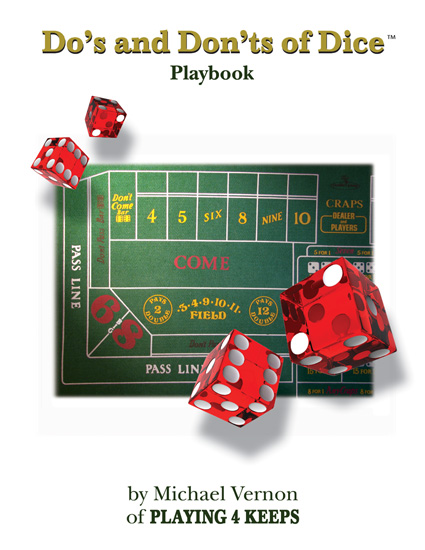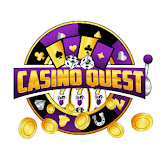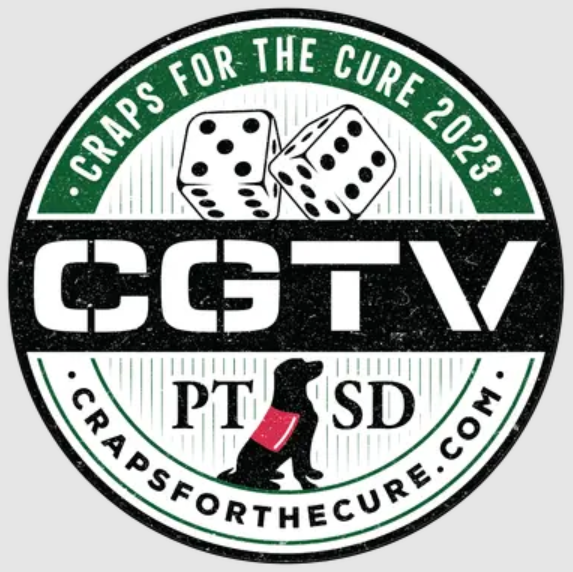|
Gears and Wheels...
BY: Mike In Hawaii
Bear with me for a moment.
In World War II the Germans created a cipher machine. It was very German. It was a thing of mechanical beauty and awe-inspiring. It consisted of a number of interlocking geared wheels with scrambled wires and contacts and even a further patch panel where you could change even more of its wiring. Every time you pressed a key to encrypt a letter, the machine moved and re-wired itself before the next letter.
The average human looking at this thing and its impressive statistics on how many key presses it would take before it would repeat itself with a given cipher key setting, and being shown its inner workings, would be dumfounded. It made the average mind implode with its complexity and beauty. Each time you pressed a wheel, it performed like a flea circus act.
It was certainly a masterful mechanical random number generator applied to the problem of encrypting text messages in an unbreakably sophisticated fashion.
But there were three things wrong with this picture and that proved to be very important.
First, it was a machine. After all was said and done it was gears and wheels. Machines are predictable. They cannot be otherwise.
Second, it was used by humans. Humans are very predictable, and error prone. They make mistakes. Such as sending out a long encrypted message and then realizing they used yesterday's cipher key and immediately re-sending it re-encrypted with today's cipher key before their supervisor catches them. This does not sound like much, but this is the sort of mistake that in the right hands gets a lot of people killed.
Third, it was not being watched by ordinary people, but by geniuses. People so smart in their unique way they needed special handling, almost like mental patients. They lived in an alternate universe and saw things others could not see. They did things with math no one had ever dreamed of before.
Between it being a machine, and thus predictable, having its mechanical purity contaminated by human error and being watched by special people who only needed a tiny clue, it failed. Even worse, the Germans could not imagine it could fail, so they kept on using it. Even as evidence mounted that it had been compromised. They blamed the security leaks on everything else but the machine. It was inconceivable this masterpiece was compromised.
Ah, so what does this have to do with Craps, and gambling?
Anything we are interested in?
Gambling and random numbers or random events are heavily interlocked. If an outcome were predictable, then gambling ceases to be gambling.
Gambling is very illegal in Hawaii, some of the most draconian anti-gambling laws in the nation; make it one of two anti-gambling super states.
Still I ran Chess Tournaments for surprisingly large amounts of cash, where each entrant would buy in, play the tournament and then the prize money would be distributed out based on a pay table for first, second and third etc.
Sound familiar? Very much like a Texas Hold'em tournament at Binions.
The difference is that while poker is still considered a random game of chance, and thus gambling, chess is considered a game of skill and therefore not gambling. One can argue over that, and indeed many do allege that poker is a game of skill, just like chess, and thus should not be gambling, legal or illegal. But poker does include a randomizer, the shuffle and deal of the cards. Chess does not. So a line gets drawn.
Any mechanical action such as shuffling cards, turning a roulette wheel, throwing dice, are all subject to random number failures which have been exploited by shrewd gamblers and followed by upgrades in Casinos to improve the chances that such things are done more randomly. A modern super card shuffler is an example.
The above WWII example and Casinos come together at this point. Especially today, more and more of the randomization at Casinos are being done by RNG's or Random Number Generators.
How random is it Johnny?
Good question. There are two basic problems. Generating random numbers and testing random numbers to see if they are really random. Both are amazingly difficult.
It is a bit like the surprising problem in optics. While it is not that hard to grind a very precise mirror or even a lens in your basement for a home-made telescope, grinding an optical flat, a piece of glass that is extremely flat across its entire surface, is tremendously difficult and demanding.
We talk about a series of numbers being "white" as in white noise. We are not talking about prejudice here, just the opposite. We are talking about all possible outcomes being generated with exactly the same expectation. If we take an alleged random number generator and collect enough sample numbers from it, we ought to be able to see it produce each possible outcome the correct percentage of the time.
So if the outcomes are either 1 or 2, heads or tails, odd or even, then we would expect it to produce one half the time, and two half the time. The problem is how many trials do we need? Oh boy, that nails it. A lot of trials as it turns out.
Are we going to be happy with plus or minus 1% confidence? If we get 51% of one and 49% of the other are we going to be happy?
Probably not. 1% is a fair percentage of the house advantage in many games. The only way to test it to a higher precision is to collect more trials.
Here is the big rub. If we collected 1,000 trials of two equally likely outcomes, say heads and tails, and decided we need more precision, more confidence, in order to double our confidence in the results we have to square the number of trials.
To double our confidence we would not need 2,000 trials. We would need 1,000,000 trials. (Gasp!). [He must be making this up.]
To increase confidence ten-fold or one stinking decimal place, we would need many more trials collected. Wait for it...
You need 1,000 raised to the tenth power, which is the size of number normally used only by astronomers. Short version, this gets out of hand very fast.
It gets worse. When you throw dice, there are not two outcomes, there are 36. As the number of outcomes increases the number of required trials to get each to have something approximating the right answer (for number of occurrences of each) goes way up also. So 1,000 may not be enough to even get you started. I find for 36 outcomes "sensible" starts at about 1 million trials.
So along comes someone with their "Super Incredible Reverse Big Red and Double Up on Sevens with Two Place Bets on the Dark Side Guaranteed Gold System for Massive Profits at Craps."
How do you test it? First you are up against 36 possible outcomes on each roll of the dice, and then you are up against the complex mechanics of the betting system, which introduces even more possible tree branches and multiplies the total outcomes. Quickly you get to where millions of trials are required to even start to get 1% confidence in any of the numbers generated.
All assuming you could generate the quality random numbers in the first place. At the very core of such a test would be a random number generator. If it is defective, everything else is defective.
Garbage In = Garbage Out (as we like to say).
But, put lipstick on that pig, make a full color Pie Chart, load it into PowerPoint, which is the greatest mass hypnosis tool ever invented, and you can sell that bacon as pure gold. And you can have the "math" to "prove" it.
How? Well any sensible number of trials is going to produce data that is of such low confidence that each test run's output will change significantly and scatter results all over the place. Just keep doing it until you eventually get the "answer" you want.
The number of trials to actually prove it would be huge and you would need a very good random number generator. The number of trials to accidentally get the "correct" answer is not large at all. In fact it is easier with fewer trials. Just pick some number like 5,000 that the average Joe is going to imagine is a large number for this purpose.
If you just want "an answer" that matches your allegation by accident, you can just keep testing until the "right" one pops out. Enshrine that Crap (pun) in Excel and work a lot on the color graphics for the PowerPoint presentation of your "proof". Suddenly the proper selection of colors for psychological impact is more important than your stinking garbage data, with one of those Christmas tree car deodorizers as optional equipment.
Now we come back to it. Any computer software random number generator is NOT random! Period! End of discussion.
It is a machine, well an emulation of a machine, with virtual gears and wheels. They are correctly called pseudo-random number generators. True, a good one takes a long time to repeat and is relatively "white" over a very long sample, but it is still a pattern generator. True the very best ones are "close enough for Government work", or your local ATM.
Is Anything Really Random?
There are few things that are considered actually "random". Probably the best of these is radioactive decay. If you have a radioisotope and you watch it with a detector such as perhaps a Geiger counter, there is no way currently known which can predict when the next "click", the next radioactive decay, is going to happen.
So you might take a pseudo-random software random number generator of high quality and run it very fast all the time, locked on. Hook it to a Geiger Counter contaminated by some radioisotope so it clicks a lot, and each time it clicks, grab the output at that instant of the pseudo-random number generator. The random clicks "encrypt" the output of the pseudo-random number generator a second time. The result is about as good as we know how to make a string of true random numbers.
Too esoteric? Not really. Ever heard of slot machines?
Modern ones do exactly this, but instead of a radioactive Geiger counter they use the human player. They run their pseudo-random number generators very fast and wait for a pull on the handle. The instant they detect a pull, they grab whatever number is up next.
The outcome is now certain. All the spinning wheels, real or simulated, or whatever other motion and flashing needs to be done is just a little show, a few seconds of entertainment for the player before revealing the answer.
The human does the final "encrypting" because they cannot pull a handle reproducibly compared to the speed of the clock on the pseudo-random number generator running inside the slot machine, or video poker machine, or whatever.
There are even websites which crank out random numbers based on this procedure, clocked a second time by the arrival of cosmic rays or decaying radioactive sources. So a high quality set of random numbers can be obtained for all the testing that needs to be done with them.
But even after your random numbers are "in order"; there is no getting around the number of trials required. Or the fact that number goes up very fast with the number of possible outcomes.
Or the real killer, what is needed to increase confidence in the answer generated. Just one silly decimal point, going from a confidence of a lousy 1% to something potentially useful like 0.1% takes not ten times as many trials. It takes however many trials you got 1% confidence with raised to the tenth power.
Opps, a Fly in the Ointment!
Let's look at a specific case. You are playing poker online. Let's assume it is a decent website with every reason to expect it is free of tampering, well run and as legitimate as playing in a top of the line casino. You get four of a kind, Jacks. The very next hand you get four of a kind, Nines. What is going on!
When you take a data set, a number of trials that is way too small, normal statistics are right out the window. If you are looking at only about 100 poker hands, that number compared to what would be required to produce "proper statistical distribution of hands" is so invisibly small, that you might capture outrageous variations from statistical chance. Such as back to back four of a kind hands. Or 100 hands with no pair, zip, high card only, all 100 of them.
Your first reaction in the above case might be to think there is something wrong with the random number generator. In fact in the old days of DOS it had a random number generator that stank so bad in its BASIC that any attempt to create a game with it was laughable. Now days even software pseudo-random number generators can be very good. My personal favorite is the DES encryption run in cipher feedback mode.
But we still have to deal with what I call God Math (with a capital M) [To Infinity and Beyond!] and real world pedestrian math, lower case.
Any time we participate in a gambling session the one thing we can count on is that our sample, our personal number of trials, will be tiny compared to what is needed to see distributions of results anywhere near those fancy statistics to many decimal places which God Math can crank out for an infinity of trials.
So while statistics may say that four of a kind is a very rare hand, with a small sample it is a bit like earthquake prediction. If someone gets up every morning and predicts there will be an earthquake in Los Angeles today, there will inevitably come a day when he is unfortunately right.
I played limit Hold'em at the Bellagio. I had a pocket pair, but I figured someone would raise before the flop so I just called. Sure enough, about four seats down, someone raised. So I re-raised and he raised again to the limit. The flop came 10, 10, Ace, and I just checked. He bet and I raised. He re-raised and I raised again.
Everyone else got very far out of the way. We were obviously both sure what was going on. He had pocket Aces and had a full house with Aces over tens. He figured that I had Ace/10 and held tens over Aces and he had me way over a barrel. We both had what I call "Titanic" hands. There is no getting away from them. Someone is going down with the ship.
I had two pair, both tens. At the Turn card we bet and raised each other to the limit. At the River we bet and raised each other to the limit. He threw down his pocket Aces so hard they bounced on the felt and the dealer was half way through pushing over the chips when I carefully turned over my cards face up for the dealer to see. The dealer did a double take and slowly raked back all those chips and shoved them over to me. One player confused asked, "What's going on?" Another player answered, "Four of a kind". Where is a bad beat jackpot when a table needs one?
As little as I get to play, something like that should never have happened in my lifetime. To get four of a kind AND the perfect setup where any novice could cash in to the limit of the law is rare indeed.
Trying to prove something by collecting trials is tricky. The number of trials needed to make a sensible and believable statement is nearly always quite large. The results from a sensible number of trials are almost certain to be garbage.
As the complexity of what is being tested goes up, the number of trials needed goes up as well, quickly surpassing anything humanly possible. By the time you take the 36 ways dice can fall, add a bunch of if then else statements on top of that to simulate even a relatively simple betting system, and even using a decent pseudo-random number generator, a computer is going to have to crank on it for a very long time to get anything believable.
This is where Monte Carlo testing falls down. At the number of trials required to get the results to settle down to a useable accuracy and precision.
Going at it the other way, attempting to use God Math to calculate the value of a Craps betting system to infinity and beyond, can be very daunting with all its paths and branches, probabilities for each branch and so forth, coupled with the changing rules for the come out and the chasing points phase. If you can do it, without error, double-checked and checked again, then you have something as we say "suitable for framing".
But ultimately to prove that something works you need to generate good data. Good data needs to have less noise than the required accuracy needed for proof. If you need to prove something is happening 51% of the time plus or minus 0.1%, the noise in the data needs to be reduced to less than 0.1%. Or you need to do it not with trials and Monte Carlo simulations, but with God Math where answers can be obtained to any required number of decimal places. Sometimes that is easy to set up. Other times it can be quit difficult.
Sometimes you cannot create a computerized Monte Carlo version at all. Take precision dice shooting or dice influencing. By its very nature a human has to throw the dice and he or she can only throw so many times in a row, so many times per minute. There is a sharp limit on how many trials can be collected. And it is WAY too few! So we can argue about dice control until the cows come home.
For me I took another approach. I reasoned out how dice control could work at the physical level and proved to myself that the skill involved was learnable. I even calculated what would be the result on the bottom line if various amounts of control were possible. Reaching the point where I consider it something every Craps player should do. Learn to shoot the dice correctly, consistently, calmly and with control. There is a chance it will make a difference and it certainly is going to help you keep your head in the game.
Beyond that, I don't think anyone will ever prove scientifically that they can control the dice in a legal fashion to a useful and reproducible extent. So I am happy to take it on faith.
But when someone announces they threw the dice several hundred times and got an abnormal amount of Sevens or whatever, my reaction is "so what?"
I would be far more interested in watching someone quickly produce a beautiful controlled, smooth throw several hundred times in a row. That I would believe in.
So What Can Be Said?
In any gambling session the one thing you can count on is that you will see so few trials that the statistics will almost certainly be skewed, possibly dramatically.
Four of a kind, twice, back to back is just the sort of thing that will happen to someone. More importantly, anyone who will sit still long enough is going to hear about it. You don't hear about the hundreds of thousands of times it did not happen to other people.
Statistics calculated to three decimal places are fun to know and tell. Just don't be surprised if the "impossible" happens. Be it four the hard way eight out of ten throws in a row, four of a kind back to back, two royal flushes on a video poker in a single hour or someone holding the dice for an hour and a half.
The reaction should not be "What are the odds against that!" it should be "That was bound to happen somewhere to someone and I got to see it!"
If lightning did not strike occasionally gambling would be a lot less fun.
Oh, yes, beware of anyone misusing lipstick...
Click Here to return to the list of prior articles ...
|
 |










